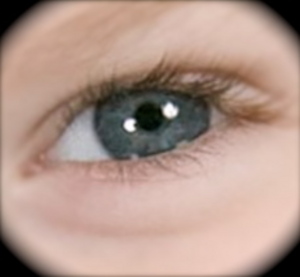Your parents probably called it “pink eye” but your doctor will call it by its medical name, conjunctivitis. Often accompanied by swollen eyelids, sensitivity to light, itching, redness and tearing, conjunctivitis is a common and often highly contagious condition caused by irritation of the membrane that lines your eyelids and the outer parts of your eyeballs.
Conjunctivitis can be caused by injury to the eye, allergens, bacteria or viruses. Conjunctivitis caused by injuries or allergies isn’t contagious but “pink eye” that’s bacterial or viral in nature can be easily spread from person to person.
Diagnosing “Pink Eye”
Only your doctor is qualified to diagnose your condition but, generally, conjunctivitis accompanied by itching and clear discharge is often caused by allergies. If your symptoms include swollen glands, your conjunctivitis may be viral while a thick, heavy discharge that crusts over usually indicates a bacterial infection. The type of conjunctivitis you have will determine how your doctor treats it.
For allergic conjunctivitis, your doctor may advise you to avoid exposure to the suspected irritant. He or she may also offer you antihistamines or corticosteroids. If your doctor determines that your conjunctivitis is bacterial he or she may prescribe eye drops or ointments specifically intended to fight the bacterial invaders. Finally, if your “pink eye” is caused by a virus, your doctor may simply advise you to let the virus run its course and focus on relieving your eye irritation.
Easing Your Discomfort When You Have Conjunctivitis
One of the most common at-home remedies for conjunctivitis is a simple compress made of either warm or cool water. Also, if your doctor approves, you may find relief from a daily wash of saline or a weak boric acid solution, using care not to spread the infection from an infected eye to a healthy eye.
Natural Herbal Remedies For “Pink Eye”
For the most part, herbal remedies for conjunctivitis have not been extensively studied for either safety or efficacy. One herb that has a long history of use as an herbal remedy for various eye issues is the herb eyebright, or Euphrasia officinalis. A 2000 study from South Africa found eye drops made from eyebright safe and effective at alleviating the symptoms of 85% of the conjunctivitis patients studied.
On the other hand, another popular herbal remedy for “pink eye” may actually cause allergic conjunctivitis in people with a history of hay fever. Chamomile tea, an herbal product often recommended as an eye wash, can be very soothing to some people but should be used with caution (if at all) by people with allergies to plants in the Matricaria or Artemisia genera.
Perhaps the oddest herbal remedy for conjunctivitis, and one recommended by the experts at the University of Maryland Medical Center, is freshly grated potato. They recommend grating a fresh, raw potato, wrapping the potato shreds in clean cheesecloth and applying it to the eye area as a poultice.
When To Seek Help With Your Conjunctivitis
Remember, only your doctor is qualified to evaluate your conjunctivitis. If you have any questions about the safety or effectiveness of any herbal remedy for “pink eye”, talk to a licensed medical professional for the information that’s appropriate for you.
REFERENCES:
Stoss, M., et al (2000). Prospective cohort trial of Euphrasia single-dose eye drops in conjunctivitis.
Subiza. J., et al (1990). Allergic conjunctivitis to chamomile tea.
UMMM. (2006). Conjunctivitis. Retrieved May 29, 2007 from http://www.umm.edu/altmed/articles/conjunctivitis-000040.ht

